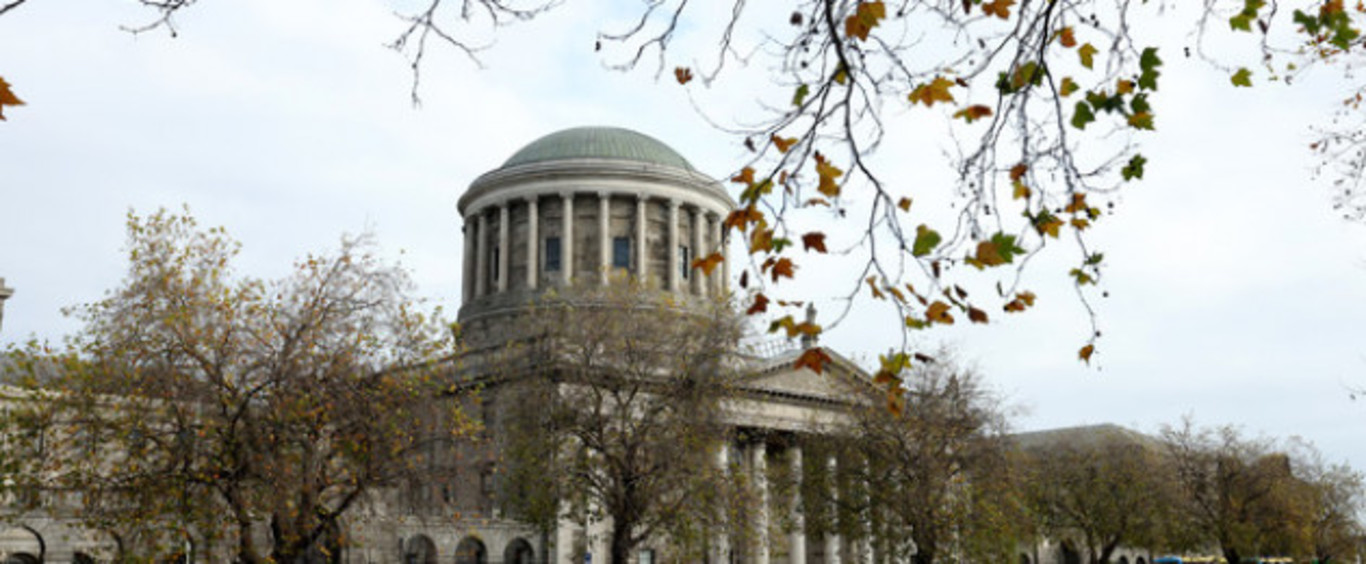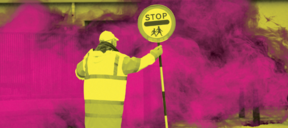EPA ‘kicked the stool’ from under peat company seeking extraction licence, High Court hears
Harte Peat Ltd is seeking to overturn the EPA’s refusal to examine its applications for a licence it made in 2019.
ONE OF THE country’s largest suppliers of peat to the mushroom industry argued before the High Court today that the Environmental Protection Agency erred in law in its refusal to examine its application for a peat extraction licence.
Harte Peat is seeking to overturn the environmental watchdog’s decision in November 2020 to refuse its 2019 application for an EPA licence to extract peat from two discrete parcels of land in Co Westmeath. The extraction area subject to the application is 49 hectares, with a total licence area of 73 hectares.
The EPA refused Harte Peat’s application as it did not have planning permission from Westmeath County Council at the time of the application and could not show any evidence that it was in the process of seeking planning permission. Under current rules, companies need to have planning permission or have a live planning application in train prior to seeking EPA licensing.
Due to the scale of Harte Peat’s operation proposed under the licence and its proximity to protected nature sites, an Environmental Impact Assessment (EIA) under EU law is required. The EPA, therefore, argues that Harte Peat’s operation requires planning permission as per EU law as outlined in the EIA Directive.
Harte Peat is challenging the lawfulness of the Agency’s decision, with Michael McDowell SC arguing on behalf of his client that the EPA erred in law in its conclusion that planning permission was required.
Planning requirement
Central to Harte Peat’s argument is that it is exempt from the need for planning permission as peat extraction commenced on the bogs prior to 1964 when modern planning laws were introduced.
During his opening statement this morning, McDowell said he wanted to again stress this point that he outlined in detail during Friday’s proceedings as “this position is vital” to his client’s case.
The EPA Act, he said on Friday, states that where planning permission is required and isn’t produced, that the Agency shall refuse a licence application. He added, however, that the Act “does not deal with the other situation where planning permission isn’t required and that lies at the heart of the error that was made here,” he said.
The Agency pleads that, by virtue of the extent and location of the proposed extraction area under Harte Peat’s licence application close to protected nature sites, its activity was likely to have an effect on the environment, and therefore, an Environmental Impact Assessment (EIA) is required in line with EU law.
As an EIA is required, the EPA argues in its Statement of Opposition, that there is a need for development consent that “supersedes any alleged pre-1964 ‘authorised’ status of the activity in question and any exemption from the requirement for planning permission”.
McDowell argued on Friday, however, that the fact that an EIA is required does not mean that pre-1964 activity requires planning permission. He argued that a “fundamental mistake of law was being made by the EPA” as it is “conflating the notion of pre ’64 development with exempted development”.
“We are not talking about exemption,” he said, accepting that Harte Peat’s activity is a form of development. He argued, however, that domestic planning laws “do not require, at the very least, planning permission for a pre ’64 activity”.
EU law prism
Speaking this afternoon, Fintan Valentine SC said that Harte Peat is inviting the court to examine the issue “solely through the prism of domestic law” and also argues that the EPA should have done likewise.
The Agency could not do so, Valentine said, as it must examine licence applications “through the lens of European law”. The “central flaw” in Harte Peat’s argument, he said, is that it has failed to consider the requirements under the EIA Directive which states that “development consent” is required for any development to which EIA is required.
“In essence, that is the end of the matter because in Ireland consent for development is planning permission,” he said. “That is the crucial part of the puzzle,” and “lies at the heart of the reasons why we say planning permission is required”, he added.
In his closing comments, McDowell argued that the suggestion the development consent requirement under the EIA Directive can only be achieved through planning permission from a local authority is “wholly untrue and incorrect”.
He pointed to a Supreme Court ruling in May 2007 relating to an incinerator facility in which the Court found that “the EPA is a competent authority for the purpose of the [EIA] Directive”.
Therefore, he argued, the EPA is obliged to assess Harte Peat’s licence application “in its entirety”, including an EIA, and that their decision would then “amount to a development consent” in line with what is required under EU law.
In his closing, Valentine countered that, in the Supreme Court case outlined by McDowell, it was determined that both planning permission and EPA licensing were required to fulfil the requirements under the EIA Directive.
While planning permission alone would not constitute development consent, he said, EPA licensing alone would also not be considered development consent.
Timing of licence application
Harte Peat made its licence application following an agreement as part of a previous injunction case brought by the EPA in which it argued the company was extracting peat without a licence near Derrycrave in Co Westmeath.
Speaking on Friday, McDowell said the EPA issued proceedings against Harte Peat in 2013 and, “by a long and tedious route”, the case was heard by Mr Justice Charles Meenan in 2018.
From this case, a “solemn agreement”, formalised as a full order of the High Court, was made in 2019 in which it was agreed that Harte Peat would make an application for an EPA licence, he said.
McDowell argued that Harte Peat’s application was made in “good faith” during a period when peat operations were deemed to be wholly exempt from the need for planning permission.
When the application was made, regulations introduced in January 2019 were in effect that exempted peat harvesting from the need for planning permission and brought all large-scale extraction above 30 hectares solely under a proposed new EPA licensing system.
McDowell said that his client met all of the requirements in the light of the statutory regime that existed at the time, including providing an environmental impact assessment report (EIAR) that “would have allowed [the EPA] to carry out an EIA”.
According to McDowell, the EPA, “sat on our application for a year, while the validity of the statutory instrument, which made provision for planning regime for peat extraction, went through the Courts”.
Quashed regulations
The regulations were struck down by Mr Justice Garrett Simons in September 2019 and the regulatory system returned to the previous set-up whereby large-scale peat extraction needs both planning permission and EPA licensing in order to lawfully operate.
McDowell said that the EPA then decided in November 2020 “to refuse point blank to consider our EPA application” on the basis that Harte Peat could not show any evidence of active planning permission, or that it was in the process of seeking permission.
“We came to an agreement with this State Agency that we would do a certain thing and they then decided to kick the stool from under us and say: ‘No, you can’t do it’”, he told the court on Friday.
Counsel for the EPA, Fintan Valentine SC, told the court last week that there was a side agreement as part of the settlement whereby there was nothing to stop the EPA from taking fresh injunction proceedings if the regulations in place at the time of Harte Peat’s licence application were struck down.
Injunction proceedings
Last week, Ms Justice Phelan also heard from both parties in new injunction proceedings brought by the EPA against Harte Peat for peat extraction from two sections of raised bog in Co Westmeath that it says the company has carried out without a licence.
The environmental watchdog argued last week during the hearing that Harte Peat has extracted peat up to five metres deep from two areas of hydrologically-connected peatlands of a combined 128 hectares on raised bog near Derrycrave. An EPA licence is required for any activity above 50 hectares.
Harte Peat contends that the activity subject to the proceedings takes place in an area below this threshold and that its activity is limited to 26 hectares on the sites in question.
Therefore, the company argues, it does not require an EPA licence for activity on these portions of the bog. It also argues that its activity is exempt from the need for planning permission.
Ms Justice Siobhán Phelan closed proceedings this afternoon and said that she hopes to issue her judgement in four weeks.






